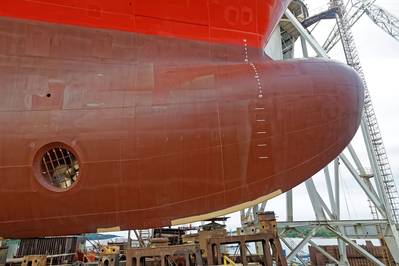Croatia Won't Back Shipyard as Bankruptcy Looms
The Croatian government said on Thursday it would not back a restructuring plan for the country's biggest shipbuilding group Uljanik due to the financial burden on the state and doubts the proposal could turn the company's fortunes around.
If no other restructuring plan emerges soon, a local commercial court will deliver a ruling on bankruptcy within weeks, threatening the jobs of almost 3000 workers.
Prime Minister Andrej Plenkovic told a cabinet session that the proposed restructuring would cost the state between 7.5 billion kuna ($1.14 billion) and 10.8 billion kuna.
"Such financial exposure would be a great burden for tax payers and the government cannot support it," he said, adding that the government was prepared to seek other solutions to keep the company afloat.
Uljanik, which is 25 percent state-owned and operates two shipyards in the northern Adriatic cities of Pula and Rijeka, has been battling to stave off bankruptcy due to liquidity problems that began in 2017.
Local newspaper Vecernji List said on Thursday that around 1,800 employees had left the company over the last year. Remaining workers are currently on strike, seeking unpaid wages.
Uljanik's management last month chose local rival Brodosplit as a strategic partner to restructure its operations but the government said the plan would cost the state more than allowing the company to go bankrupt, which it estimated at 557 million euros ($626.35 million).
However, if the company is forced into bankruptcy, it could open the way for a slimmed down shipbuilding business to emerge.
Earlier this week 12 people, mostly former top managers in Uljanik, were arrested on suspicion of causing more than one billion kuna in financial damage to the company and the state budget.
Croatia has spent more than 33 billion kuna in the past 25 years to save and then sell state-owned shipyards, efforts that have yielded little success.
Last week the country regained an investment grade rating from S&P Global due to its fiscal consolidation efforts of the last few years.
Keeping control over public finances is one of the key prerequisites for maintaining the rating as well as adopting the euro in the next four to five years.
Reporting by Igor Ilic











